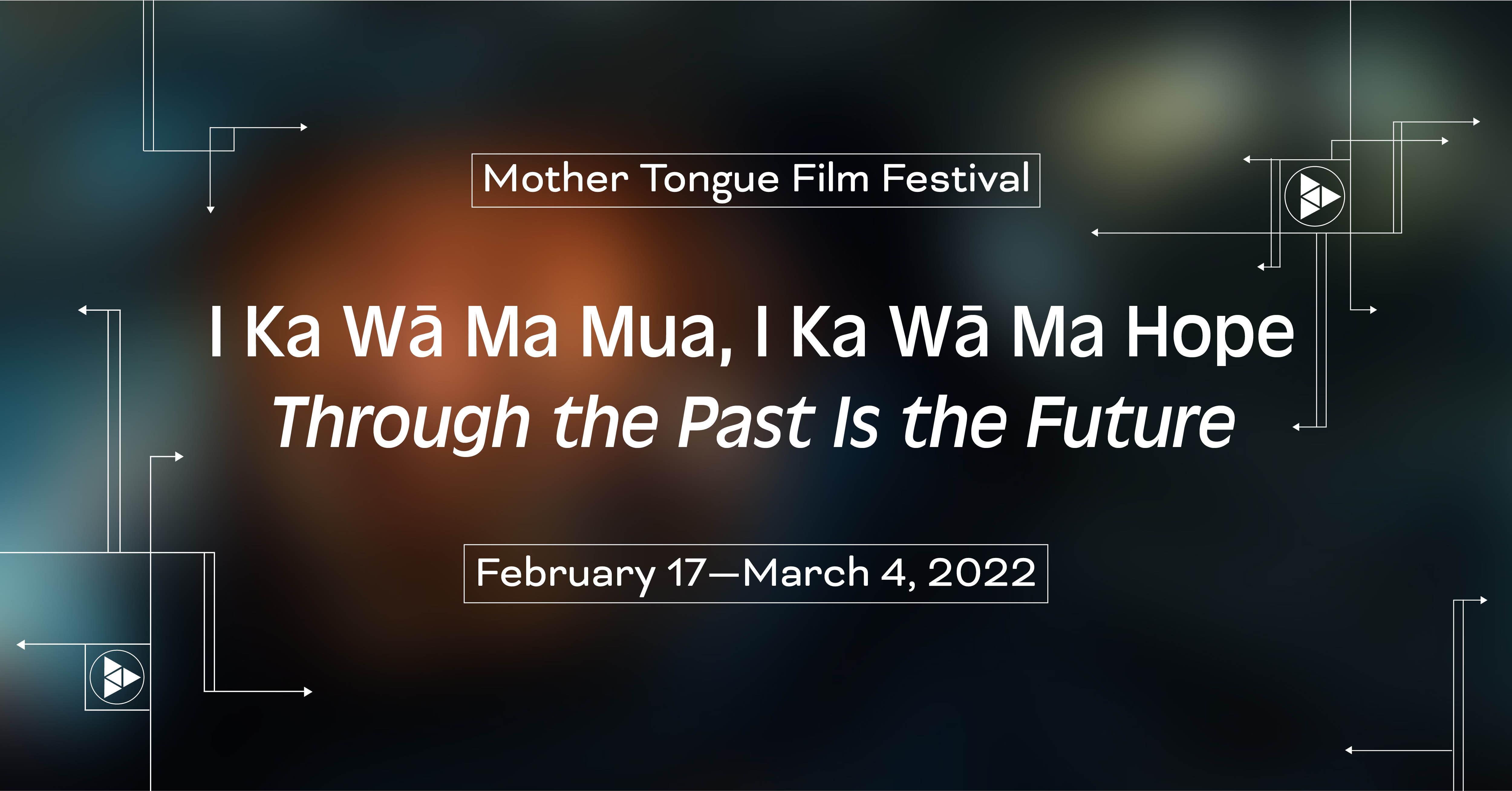Smithsonian Presents the Mother Tongue Film Festival, “Through the Past Is the Future”
The Smithsonian’s Recovering Voices initiative will host a two-week film-screening series highlighting the legacy of the past and its ongoing influence on the future. Presented virtually, the seventh annual Mother Tongue Film Festival features 36 films in 45 languages from regions across the globe. The festival centers around International Mother Language Day, Feb. 21, and is co-presented with the UN Decade of Indigenous Languages. The festival opens Feb. 17 and runs through March 4. All screenings and events are free.
“This year’s Mother Tongue Film Festival takes its inspiration from the ‘Ōlelo Hawaiʻi phrase i ka wā ma mua, i ka wā ma hope (through the past is the future), and in doing so, focuses on the gifts from the past and our obligations to those that came before as we chart our futures,” said Joshua A. Bell, curator of globalization at the Smithsonian’s National Museum of Natural History and co-director of the festival. “Language is foundational to these relationships, which the festival’s films this year explore.”
“We are honored to present highly innovative new work, much of it produced in times of duress and as a result of creative collaboration,” said Amalia Córdova, festival co-director and museum curator of world cultures at the Smithsonian’s Center for Folklife and Cultural Heritage. “We are pleased to be among the first events marking the Decade of Indigenous Languages, declared by the UN, and while we are in this time of primarily online festivals, we hope to touch audiences near and far.”
A schedule of screenings and events and registration information can be found at mothertongue.si.edu. Viewers should register in advance as online attendance to select film screenings will be limited. The festival’s highlights include:
Opening Ceremony and “Bootlegger” U.S. Premiere
Thursday, Feb. 17; 6 p.m. ET
Following opening remarks from Smithsonian organizers, the festival’s first screening presents the U.S. premiere of Caroline Monnet’s debut feature film Bootlegger alongside the world premiere of Ixim Ulew, the latest music video from Maya hip-hop artist Tz’utu Kan.
Representation in Film: Directors Panel
Monday, Feb. 21; 3:30 p.m. ET
On International Mother Language Day, Kālewa Correa, curator of Hawai’i and the Pacific at the Smithsonian Asian Pacific American Center, speaks with filmmakers Conrad Lihilihi (Mainland, 2020) and Hinaleimoana Wong-Kalu (The Healer Stones of Kapaemahu, 2022) about the real-world implications of racial misrepresentation in film, what it means to have their cultures properly represented and the challenges they have faced in the entertainment industry.
Ways of Learning and Reclamation: Education Roundtable
Friday, Feb. 25; 11 a.m. ET
The annual education panel addresses approaches to language learning and reclamation in North America. Carly Tex, director of the Advocates for Indigenous California Languages Survival, featured in the film Chasing Voices, will lead the live discussion with Ron Corn Jr., featured in Living Language: Menominee Language Revitalization; Olivia Uvilik, creator of Inuktitut Dialects in the 21st Century; and Renée Sampson, director of Heli, set ŧte sќál Ƚte (Bringing Our Language Back to Life).
Centering Women’s Voices: Directors Roundtable
Thursday, March 3; 1 p.m. ET
Every year, Mother Tongue presents a roundtable with women directors to honor the role of women in language transmission. This year, we bring together filmmakers from communities in Canada, the United States and Mexico to discuss the power of language in their films, expanding on the courage that is required in portraying difficult realities for a more balanced future.
The Mother Tongue Film Festival is presented by Recovering Voices. The festival is co-presented with the UN Decade of Indigenous Languages. Additional Smithsonian partners include the Smithsonian’s National Museum of Asian Art. This program received support from the Latino Initiatives Pool, administered by the Smithsonian Latino Center. Additional support is provided by Columbia University School of the Arts, Documentary Educational Resources, the Embassy of Canada to the United States, the Québec Government Office in Washington D.C., Georgetown University Department of Anthropology, The Elizabeth and Whitney MacMillan Endowment, Wick and Bonnie Moorman, the Environmental Film Festival in the Nation’s Capital and Ferring Pharmaceuticals.
About Recovering Voices
Recovering Voices is an initiative of the Smithsonian founded in response to the global crisis of cultural knowledge and language loss. It works with communities and other institutions to address issues of Indigenous language and knowledge diversity and sustainability. Recovering Voices is a collaboration between staff at the National Museum of Natural History, the National Museum of the American Indian, the Center for Folklife and Cultural Heritage and the Asian Pacific American Center.
# # #
SI-54-2022

